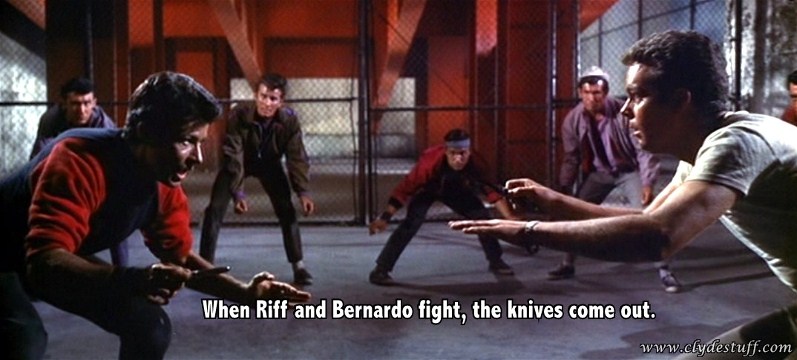mduncan50 said:
So far as Batman, other than the Schumaker "films", I would say that realism is the default state for Batman and his films. More than most other heroes he and his rogues gallery are the result of gadgets and mental disorders as opposed to superpowers. I would compare most live action Batman movies to the James Bond films of their time.
Batman may be realistic in terms of comparison to other superheroes. Whether he's "realistic" in general terms is another matter.
Also, James Bond? Um...
1989: Batman (Burton) vs. Licence to Kill
1995: Batman Forever vs. GoldenEye
1997: Batman & Robin vs. Tomorrow Never Dies
2005/'06: Batman Begins vs. Casino Royale
2008: The Dark Knight vs. Quantum of Solace
2012: The Dark Knight Rises vs. Skyfall
2015/'16: Spectre vs. Batman v Superman
I've left out Batman Forever, TWINE, and DAD on that list since they don't have clear counterparts in terms of release schedule. To the assessment, that's probably true in the 2000s, in that the period marks a shift in both series, but prior to that, there aren't really counterparts. The Dalton films and GoldenEye are pretty serious, and while I haven't seen the Burton Batman films, as far as I can tell (and from what I've heard), they're far more rooted in comic sensibilities than Nolan. Likewise, Spectre may be the least realistic Craig film by default, but it still goes for a realistic angle, and it is way, WAY removed from Batman v Superman in terms of tone (and quality, for that matter).
mduncan50 said:
As for Superman, I don't know if you can call it a "risk" to try and make him realistic so much as "foolish". He is the very opposite of realistic, and no matter how much you try (which quite frankly I don't find MoS or BvS really tried to do, they just made him super serious and hoped we wouldn't notice) you can't make him ever seem realistic. He is an invulnerable alien that doesn't require oxygen, flies, has super strength, heat vision, x-ray vision, laser eye bursts, super speed, super smarts, super breath, freeze breath, super hearing/sight/smell, and super ventriloquism. Trying to make him "realistic" kind of shows a misunderstanding of the character on a fundamental level.
Everything you've stated is on the aspect of his powers. Which, of course, are unrealistic. However, I can give MoS props because:
-It shows a conflicted Clark Kent dealing with isolation, unease, doubt, etc. Whether this is true or not to the source material is irrelevant (and that's the same for me as any adaptation - judging the strength of adaptation is a fun exercise, but secondary to how well the material is presented in its own right). That makes for an interesting and understandable conflict, so that by the end of the movie, by which point he's embraced his own self and outright stated his desire to help people, it makes for a more compelling character arc. One that Batman v Superman botches, but I can like MoS and not BvS, thank you very much.
-Has the benefit of a strong antagonist with reasonable motives. As in, they're easy to explain and are rational. Now, the only other Superman films I've seen are Returns & Quest for Peace, so I don't have much to compare/contrast them to, but at the least, it's refreshing to see.
MoS is flawed, IMO. Quite flawed, mainly in regards to its pacing and editing. However, in terms of concept, I still have to give it props for doing a "what if Superman existed in the real world?" A world where people would look on Superman with suspicion or fear, a world where someone like Clark Kent has to deal with the harsh realities of said world, a world where there's no easy solution to whether humanity or kryptonians come out on top. That sounds like a bit of a risk to me.
mduncan50 said:
I would also disagree that writing and world-building needs to be tighter for a realistic world. In a realistic world setting you're simply saying, this is like our world, except Kolonel Kangaroo Kick can do this because (usually) science, whereas when the world is not realism based, you need to set up the rules of the world and how it differs from ours, along with how the super-powered characters fit in to it.
Using sci-fi and fantasy as an example, I don't think worldbuilding is necessarily easier or harder in either the "soft/low" or "hard/high" ends of their respective spectrums. Superheroes, however, in the scope of my experience, rarely seem concerned with worldbuilding at all. Usually it's a case of "lore by accumulation" rather than "lore by design," so whatever rules are being established aren't really examples of worldbuilding, but more designed to serve whatever plot is going on at the moment. The only superhero serials I can think of that have ever had a focus on worldbuilding in any capacity are Power Rangers RPM and...um...does Overwatch count?
Maybe exceptions exist - don't know, not invested enough in the genre to care. But as an example, contrast, say, Batman Begins, which goes for the realistic angle, and therefore has to take the time to explain its plot points (Bruce's training, Bruce's acquisition of tech, etc.) vs. Captain America, which has Norse god tech (just because), super serum (that can pass, it's what you're signing up for), hover-tech (because I'm sure that was around in the 40s), laser guns (where's my laser gun now if they were around 60 years ago?), and so on. This isn't worldbuilding, this isn't doing an alternate history or "one-step removed" story, this is throwing stuff into the movie for the heck of it. Which isn't necessarily a bad thing, but I can hardly call it an example of stellar writing, worldbuilding or otherwise.



